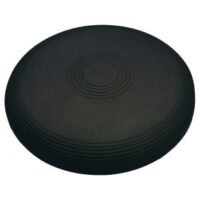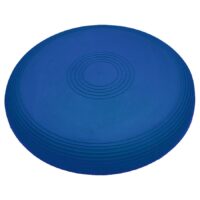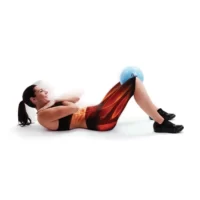Cervicogenic Dizziness & Vertigo
Article by J. Miller, S.Armfield

Cervicogenic Dizziness & Vertigo
Understanding Dizziness Causes
Cervicogenic dizziness often arises from neck disorders, presenting as imbalance or light-headedness without the spinning typical of vertigo. It contrasts with cervicogenic vertigo, which results in a distinct sensation of spinning, usually accompanied by neck pain and stiffness. Understanding the nuances between them is vital for correct diagnosis and treatment.
Cervicogenic Dizziness Explained
Cervicogenic dizziness manifests as a sensation of wooziness or being off-balance, triggered by neck movement or maintaining a particular posture for extended periods. Unlike cervicogenic vertigo, it does not involve the perception of spinning. Neck pain is a common symptom, and factors like poor posture or muscle imbalances can exacerbate the condition.
Distinguishing Cervicogenic Vertigo
Cervicogenic vertigo stems directly from neck dysfunctions that send false signals to the brain, causing the environment to seem as though it’s spinning. It often correlates with specific neck movements or postures. Pain, stiffness, and limited movement in the neck area are usual accompaniments.
Identifying Dizziness Causes
Pinpointing the causes of cervicogenic dizziness can be challenging due to its symptom overlap with other conditions. Accurate identification relies on a healthcare professional’s expertise in the cervical spine and vestibular matters. The diagnostic process may include a thorough medical history review, physical examinations, and diagnostic tests to craft a tailored treatment approach.
Understanding Vertigo Causes
While the exact causes of cervicogenic vertigo are not always clear, several contributors have been identified:
- Neck Injuries: Trauma, such as that from car accidents, can impair neck function and lead to vertigo. eg Whiplash
- Spine Disorders: Conditions like herniated discs might irritate nerves in the neck, inducing dizziness and vertigo.
- Postural Issues: Chronic poor posture can strain the neck, contributing to these conditions.
- Muscle Imbalance: An imbalance in neck muscle strength or flexibility can destabilise the cervical spine.
- Repetitive Strain: Continuous activities, such as extended periods of computer use, can lead to cervicogenic dizziness or vertigo.
Stress and anxiety are also known to amplify symptoms, underscoring the importance of a comprehensive evaluation by healthcare professionals.
Symptoms of Cervicogenic Dizziness and Vertigo
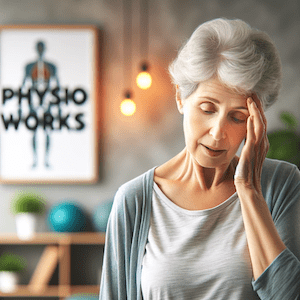
Cervicogenic dizziness symptoms range from a general feeling of imbalance to specific instances of unsteadiness during motion. Common symptoms include:
- A vague sense of dizziness
- Unsteadiness or difficulties with walking and turning the head
- A feeling of wooziness or floating
- Neck pain, often localised at the back of the neck
- Variably intense headaches
- Stiffness and reduced neck movement
- Visual disturbances, like focusing difficulties
Cervicogenic vertigo, on the other hand, includes symptoms such as:
- Spinning sensations, particularly after neck movements
- Persistent neck pain, usually at the back of the neck
- Stiffness and limited neck mobility
- Dull headaches at the skull’s base
- Balance issues without spinning, often related to neck positioning
- Visual problems during dizzy spells
Consult a healthcare professional if you experience these symptoms for an accurate diagnosis and advice. Your doctor or physiotherapist are excellent options to assess you further.
Treatment and Management
Addressing underlying neck issues is central to treating both cervicogenic dizziness and vertigo. Treatment options include:
- Physiotherapy: Exercises and techniques to enhance neck mobility and balance. See Neck treatment.
- Medications: Prescription of muscle relaxants or anti-inflammatory drugs.
- Posture Correction: Adopting proper ergonomics to reduce neck strain. See Posture improvement tips.
- Lifestyle Adjustments: Avoiding movements that trigger symptoms and practising stress-relief techniques.
- Medical Interventions: More severe cases may require medications, injections, or surgery.
Education on the condition, identifying personal triggers, and applying self-management strategies are beneficial steps.
Conclusion
Cervicogenic dizziness and vertigo require a specialised approach for effective management. Healthcare providers with expertise in this area can determine the best course of action. A personalised treatment plan, with an emphasis on understanding triggers and managing symptoms, will often yield the best outcomes. If you’re dealing with these symptoms, it’s essential to reach out to a trusted healthcare team for specific guidance and care.
Related Articles
- Vertigo & Dizziness: This article discusses various aspects of dizziness and vertigo.
- Vestibular FAQs: It provides answers to frequently asked questions about vestibular issues, including cervicogenic vertigo.
- Vertigo Causes & Dizziness Causes: This piece explores different causes of vertigo and dizziness, including cervicogenic sources.
- Vestibular Physiotherapy: Balance & Dizziness Solutions: This article offers solutions for balance and dizziness issues.
- How Do I Know If I Have Vertigo or Dizziness?: It helps differentiate between vertigo and dizziness, which is useful for understanding cervicogenic issues.
- Neck Strengthening – What Specific Exercises To Do & Why?: This is relevant as it links neck issues to vertigo or dizziness.
- Vestibular Migraine: Since it discusses vestibular migraine, which can cause dizziness and vertigo.
- Neck Headache: It covers neck headaches that can be related to cervicogenic dizziness.
- Effective Cervical Facet Joint Pain Management: This article can be helpful since cervical facet joint pain might relate to dizziness and vertigo issues.
- Whiplash: This article explores the connection between neck issues and vertigo or dizziness, relevant to the topic of cervicogenic conditions.
Rochedale - Call 38410277
Book Online: RochedaleSalisbury - Call 32751044
Book Online: SalisburySandgate - Call 32691122
Book Online: SandgateArticle by Shane Armfield
Discussing Dizziness & Vertigo Causes
Understanding Vertigo Causes: How to Find Balance Again
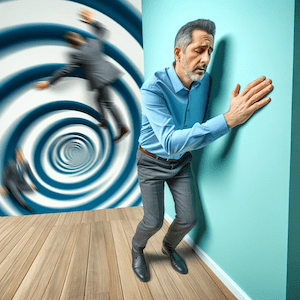

Battling Vertigo and Dizziness
Experiencing vertigo or dizziness can make everyday tasks feel overwhelming. These sensations can disrupt your life, making it difficult to walk, drive, or even stand without feeling off-balance. Identifying the causes behind vertigo and dizziness is crucial to regaining stability and returning to your normal routine.
Common Causes of Vertigo and Dizziness
Inner Ear Disorders
Vertigo often originates from problems within the inner ear. Some common conditions include:
- Benign Paroxysmal Positional Vertigo (BPPV): This occurs when tiny crystals in your ear canal become dislodged, leading to sudden and brief episodes of dizziness.
- Meniere’s Disease: Characterised by a fluid imbalance in the inner ear, Meniere’s disease can cause vertigo, tinnitus, and hearing loss.
- Vestibular Neuritis or Labyrinthitis: These conditions result from inner ear infections that cause inflammation and lead to vertigo.
Cervicogenic Dizziness
Another significant cause is cervicogenic dizziness, which stems from neck issues. Problems in the neck can interfere with sensory signals to the brain, resulting in dizziness. This type of dizziness is often overlooked but is crucial to recognise for effective treatment.
Other Causes of Dizziness
Dizziness can also arise from various other sources, including:
- Low Blood Pressure: Sudden drops in blood pressure can cause light-headedness.
- Medications: Some medications list dizziness as a potential side effect.
- Anxiety or Stress: High stress levels can lead to episodes of dizziness.
Diagnosing Vertigo and Dizziness
Understanding the root causes of vertigo and dizziness helps healthcare professionals tailor treatments to reduce or eliminate these symptoms. This process may involve a series of diagnostic tests to pinpoint the exact cause, ensuring a more effective treatment plan.
Treatment Options
Vestibular Physiotherapy
Vestibular physiotherapy can significantly improve symptoms of vertigo and dizziness. This specialised therapy focuses on exercises and techniques that help retrain the brain and improve balance. It's especially beneficial for conditions like BPPV and Meniere’s disease.
Medical Treatments
In some cases, medication may be prescribed to manage symptoms or treat underlying conditions. For instance, medications can reduce inner ear inflammation or manage anxiety-related dizziness.
Lifestyle Changes
Making certain lifestyle adjustments can also help. Reducing salt intake can manage Meniere’s disease, while regular exercise and stress management techniques can alleviate anxiety-induced dizziness.
Conclusion
Determining the causes of vertigo and dizziness can be complex. While many causes are benign and manageable, some may indicate more serious conditions. It's essential to consult a healthcare professional for an accurate diagnosis and appropriate treatment plan. Vestibular specialists, including ENT doctors and vestibular physiotherapists, can guide you towards a more stable and balanced life.
What to Do?
If vertigo or dizziness is impacting your life, consider booking an appointment with a physiotherapist. They can assess your symptoms and provide tailored advice. For more information on managing vertigo and dizziness, explore our Vestibular Physiotherapy section and FAQs.
Rochedale - Call 38410277
Book Online: RochedaleSalisbury - Call 32751044
Book Online: SalisburySandgate - Call 32691122
Book Online: SandgateVertigo FAQs
- What is vertigo? Vertigo is a sensation of spinning or dizziness, often caused by inner ear problems.
- What causes vertigo? Common causes include BPPV, Meniere’s disease, vestibular neuritis, vestibular migraine and cervicogenic dizziness.
- How is vertigo diagnosed? Diagnosis involves a physical examination, medical history review, and specific tests like the Dix-Hallpike maneuver. Consult your physiotherapist or doctor.
- Can stress cause vertigo? Yes, high stress and anxiety can lead to dizziness and vertigo episodes.
- What is the treatment for vertigo? Treatments include vestibular physiotherapy, medications, and lifestyle changes such as reducing salt intake.
- When should I see a doctor or physiotherapist for vertigo? If vertigo significantly impacts your daily life or is accompanied by other symptoms like hearing loss or severe headaches, seek medical advice.
Related Articles
- Cervicogenic Dizziness & Cervical Vertigo - Tips & Treatment: Readers will find detailed explanations about how neck disorders can lead to dizziness and vertigo.
- Vertigo & Dizziness: This article offers a broad overview of dizziness and vertigo, providing insights into their differences and potential causes.
- Vestibular Physiotherapy: Balance & Dizziness Solutions: Explore how vestibular physiotherapy can help manage and treat balance issues and dizziness.
- What Are The Four Types Of Dizziness?: Readers will learn about the four distinct types of dizziness and their respective causes and symptoms.
- Meniere's Disease: An in-depth look at Meniere's Disease, offering insights into its symptoms, diagnosis, and management.
- Vestibular Migraine: This page discusses vestibular migraines, highlighting their unique challenges in diagnosis and treatment.
- Neck Pain: Find comprehensive information on the various causes of neck pain and its relationship to dizziness and vertigo.
- What Are The Symptoms Of BPPV?: An article detailing the symptoms of Benign Paroxysmal Positional Vertigo (BPPV), helping readers to better understand this condition.
- Vestibular FAQs: Offers answers to frequently asked questions about vertigo and dizziness, enhancing understanding of these conditions.
- Vertigo Causes & Dizziness Causes - Advice & Managing Tips: Provides information on the various causes of vertigo and dizziness, along with tips for managing these conditions.
Article by John Miller
Balance Exercises
How to Improve Your Balance
Improving your balance is not only possible, but it can also be remarkably straightforward. Recent scientific research underscores the effectiveness of balance retraining. Remarkably, you can see significant improvements in just a few weeks by incorporating progressive balance exercises. These exercises work to normalise your balance and corrective reactions, essential for everyday activities and sports performance.
The Importance of Balance Assessments
A crucial first step in improving balance is undergoing a professional balance assessment. Physiotherapists are skilled in safely evaluating your balance and prescribing tailored exercises and equipment for balance improvement. These assessments form the foundation for a personalised balance enhancement program.
Read more: Where Can You Get Your Balance Assessed?


The Best Exercises for Fall Prevention
One of the primary benefits of improved balance is fall prevention. This is particularly important as we age. Exercises that enhance strength, balance, and righting reactions are central to fall prevention. Safety during these exercises is paramount. A physiotherapist can tailor a safe, effective fall-prevention exercise program to your needs. This personalised approach ensures a steady progression as your balance improves. For professional guidance on starting a fall-prevention exercise routine, consult your physiotherapist.
Utilising Balance Enhancement Products
Over the years, clinicians have developed a range of products that effectively enhance balance. These products have shown success in reducing falls plus also ankle and knee ligament sprains and improving daily and sporting performance. Many of these can be used conveniently at home to boost your balance, reduce injury risk, and alleviate joint pain.
Some recommended balance enhancement products include:
Incorporating these products into your balance training can maximise benefits, leading to improved balance and stability.
For more details: Balance-Related Products
New Research and Developments in Balance Training
Recent studies have brought to light new insights in balance training. These include the importance of multi-directional exercises, the role of core strength in balance, and the benefits of proprioceptive training. Integrating these elements into balance training can lead to more comprehensive improvements.
Conclusion and Next Steps
Improving your balance is an achievable goal with the right approach. Starting with a professional assessment and following through with tailored exercises and the use of enhancement products can lead to significant improvements. The evolving field of balance training continues to offer new strategies and insights.
What to Do Next?
Seek professional advice from your physiotherapist. They can guide you through a safe, effective balance improvement program tailored to your needs. Remember, the journey to better balance starts with a single step – reaching out to a professional!
More Info
Rochedale - Call 38410277
Book Online: RochedaleSalisbury - Call 32751044
Book Online: SalisburySandgate - Call 32691122
Book Online: SandgateReferences
- Brown JJ. Cervical contributions to balance: cervical vertigo. In: Berthoz A, Vidal PP, Graf W, editors. The Head Neck Sensory Motor System. Oxford University Press. 1992:644–647.
- Ryan MS, Cope S. Cervical vertigo. Lancet 1955; 2:1355–1358.
- Furman JM, Cass SP. Balance Disorders: A Case-Study Approach. Philadelphia: F.A. Davis, 1996.
- Wrisley DM, Sparto PJ, Whitney SL, Furman JM. Cervicogenic dizziness: a review of diagnosis and treatment. J Orthop Sports Phys Ther 2000; 30:755–766.
- Norre ME. Cervical vertigo. Diagnostic and semiological problem with special emphasis upon “cervical nystagmus”. Acta Otorhinolaryngol Belg 1987;41:436–452.
- van de Calseyde P, Ampe W, Depondt M. ENG and the cervical syndrome. Adv Otorhinolaryngol 1977;22:119–124.
- Barnsley L, Lord S, Bogduk N. Whiplash injury. Pain 1994;58:283–307.
- Galm R, Rittmeister M, Schmitt E. Vertigo in patients with cervical spine dysfunction. Eur Spine J 1998;7:55–58.
- Karlberg M, Magnusson M, Malmstrom EM, Melander A, Moritz U. Postural and symptomatic improvement after physiotherapy in patients with dizziness of suspected cervical origin. Arch Phys Med Rehabil 1996;77:874–882.
- Wing LW, Hargrave-Wilson W. Cervical vertigo. Aust N Z J Surg 1974;44:275–277.









